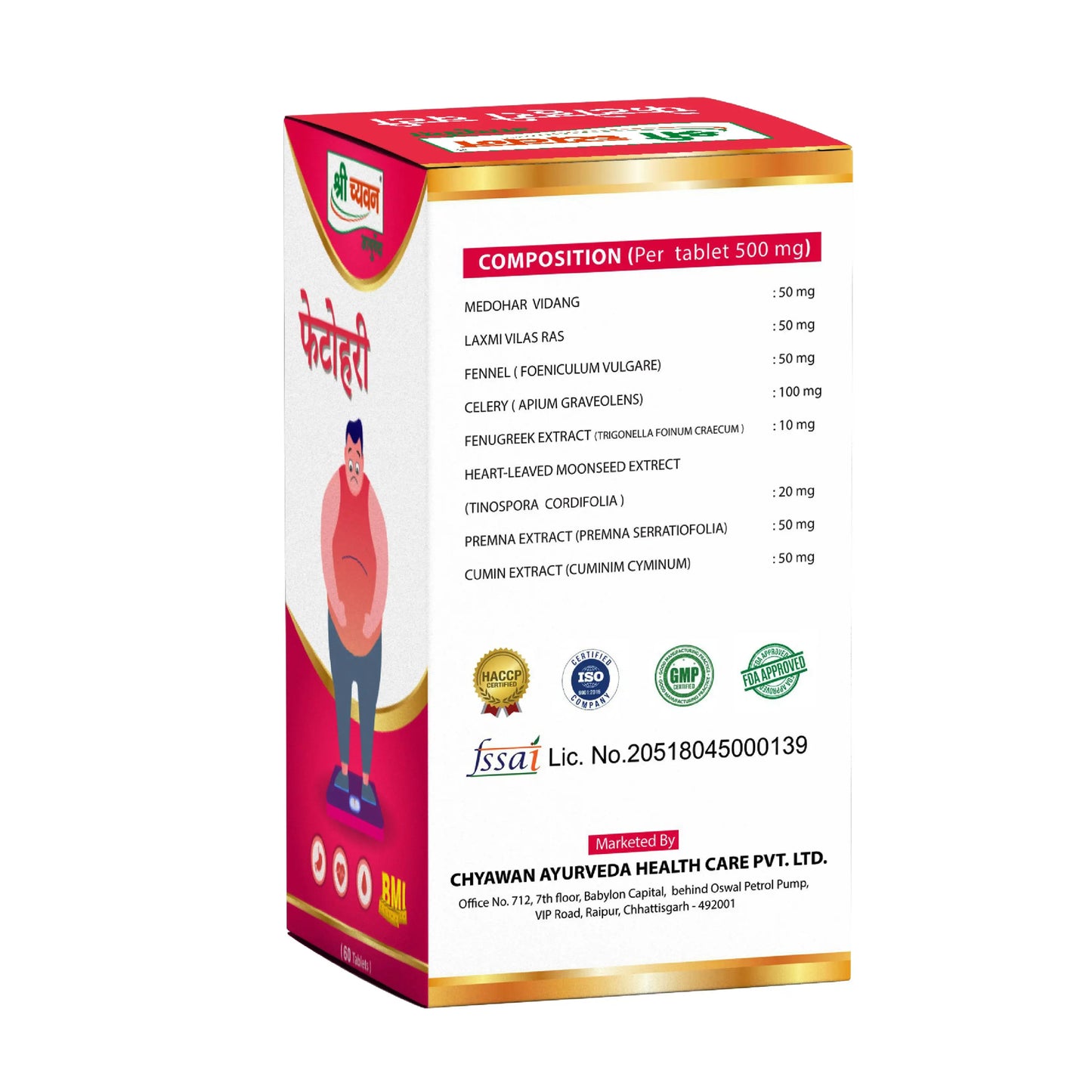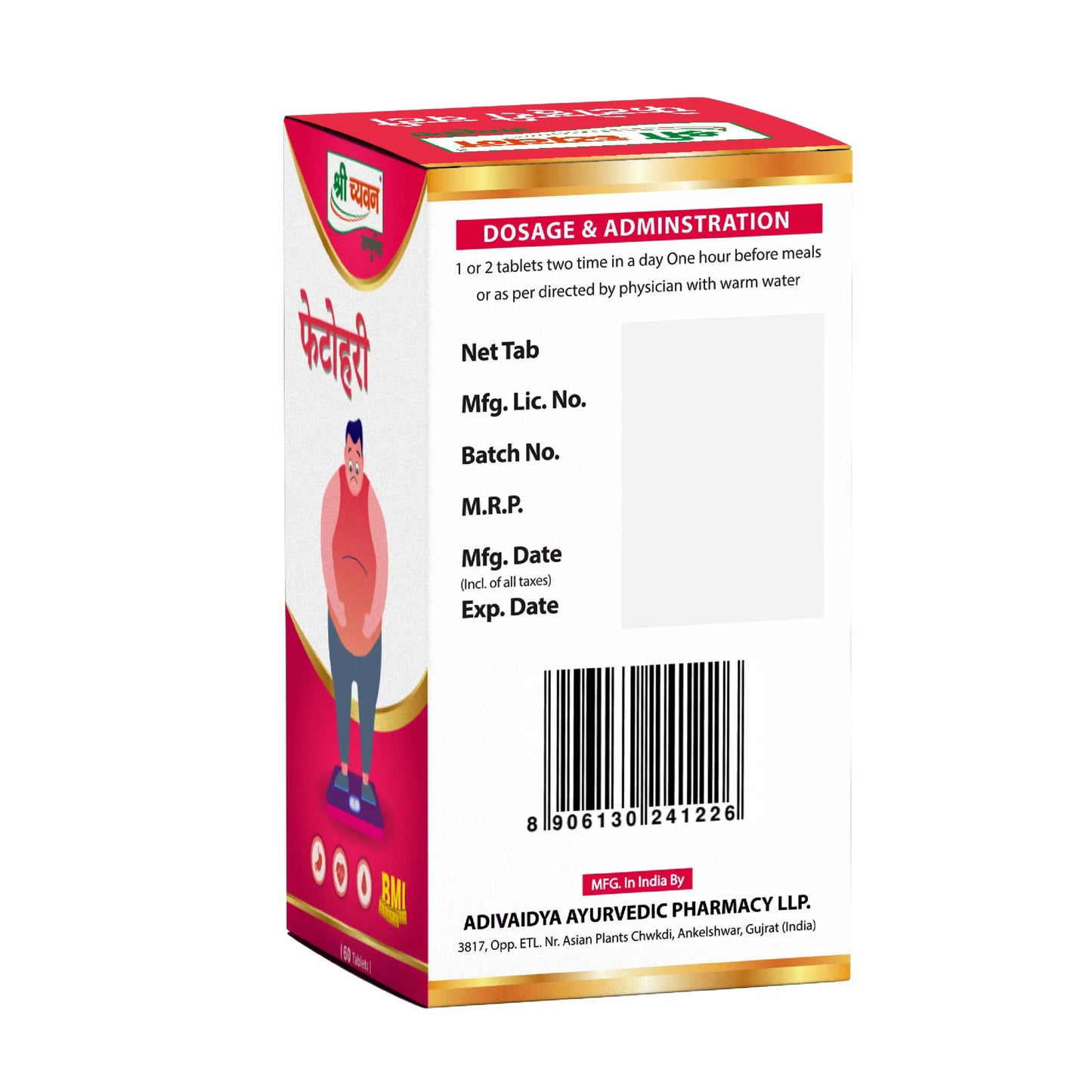In a world where the pursuit of health and fitness has become a global phenomenon, the struggle with weight loss remains a prevalent challenge for many. The journey to shedding those extra pounds is often met with hurdles, frustrations, and setbacks. This blog post aims to delve into the intricacies of weight loss, exploring the reasons why people find it difficult, the rapidity of weight gain and the potential solutions offered by Ayurvedic herbs.
Why Weight Loss is a Challenge for many of us?
-
Lifestyle Factors: The modern lifestyle is characterized by sedentary jobs, processed food consumption, and erratic sleep patterns. These factors contribute significantly to weight gain. People often find it challenging to incorporate regular exercise into their busy schedules, and unhealthy eating habits become a norm.
-
Psychological Factors: Emotional eating, stress, and mental health issues can lead to overeating, making it difficult for individuals to maintain a healthy weight. Food often becomes a coping mechanism for dealing with emotions, and breaking this cycle requires a holistic approach.
-
Metabolic Rate: The metabolic rate varies from person to person, and factors like age, genetics, and hormonal imbalances can impact it. Slower metabolism makes it harder for some individuals to burn calories efficiently, making weight loss more challenging.
- Environmental Factors: Our environment plays a crucial role in determining our weight. Access to unhealthy food options, food marketing, and societal norms around body image can contribute to unhealthy weight gain.
Reasons for Rapid Weight Gain:
-
Processed Foods: The prevalence of processed foods, laden with sugar, unhealthy fats, and additives, has contributed significantly to the rapid weight gain observed in many societies. These foods are often high in calories and low in essential nutrients, leading to overconsumption.
-
Sedentary Lifestyle: Modern technology has made life more convenient but has also led to a decrease in physical activity. Sedentary jobs, along with increased screen time and lack of exercise, contribute to weight gain.
-
Hormonal Imbalances: Hormones play a crucial role in regulating weight, and imbalances can lead to rapid weight gain. Conditions like polycystic ovary syndrome (PCOS) and thyroid disorders can disrupt hormonal balance and contribute to weight-related issues.
- Lack of Awareness: Many people are unaware of the nutritional content of the food they consume. Lack of education about proper nutrition and portion control can lead to unintentional overeating and weight gain.
Ayurvedic Insights into Weight Loss:
Ayurveda, the ancient Indian system of medicine, offers a holistic approach to weight loss by addressing the root causes. It views the body as a complex system where imbalances can lead to various health issues, including weight gain.
Shri Chyawan Obesity Care Kit: Our ayurveda experts have formulated one of the best fat loss medicine in ayurveda - Obesity Care Kit.
The kit contains a vati, a churn and syrup playing a major role in reducing weight.
- Feto Hari Vati- It is an effective weight loss ayurvedic tablet that helps in eliminating the excess fat from the body and also proves beneficial to reduce obesity in one's body. It is the best ayurvedic weight loss medicine available.
Ingredients: It consists of Medodhar Vidang, Fennel, Celery Fenugreek extract, Cumin extract, and Premna extract.
How to use: Twice a day on an empty stomach in the morning and evening.
- Maidohar Churn -It is beneficial to remove constipation, acidity and gas. It is recommended as an effective weight loss ayurvedic powder.
Ingredients: It consists of Viding, Haritaki, Bilav mul, Amla, Safed Chandan, Sugandh bala, Nagarmotha, Sauth, Loh Bhasm, Guggul.
How to use: Before going to bed but post dinner - consume this churn for better digestion.
- Life Guard Advance Syrup:It is multivitamin syrup that provides all the necessary vitamins required by our body during pregnancy or anaemia. It helps to boost the immunity power.
Ingredients: It consists of Arjun Chal, Aswagandha, Gokhru, Satvari, Utangan, Shilajeet, Tulsi, Salimpanja, Amla, Harde, Baheda, Suth,Mari, Pipal.
How to Use: Take 10ml of Shri Chyawan's Life Guard Advance syrup after light breakfast.
Here are some other Ayurvedic Herbs that can aid in Weight Loss:
-
Triphala: Triphala is a traditional Ayurvedic formulation consisting of three fruits – Amalaki (Indian gooseberry), Bibhitaki, and Haritaki. It is known for its digestive and detoxifying properties, helping to cleanse the digestive system and support weight loss.
-
Guggul: Guggul, derived from the resin of the Commiphora mukul tree, has been used in Ayurveda for centuries. It is believed to enhance metabolism and promote fat burning, making it a valuable herb for those aiming to lose weight.
-
Turmeric: Curcumin, the active compound in turmeric, possesses anti-inflammatory and antioxidant properties. It may help in weight loss by reducing inflammation, improving insulin sensitivity, and regulating metabolism.
-
Ashwagandha: Ashwagandha is an adaptogenic herb that helps the body adapt to stress. Stress management is crucial for weight loss, as chronic stress can lead to overeating and weight gain. Ashwagandha may support overall well-being and aid in weight management.
- Trikatu: Trikatu is a combination of three pungent herbs – black pepper, long pepper, and ginger. It is known for its digestive benefits, promoting the assimilation of nutrients and supporting a healthy metabolism.
In the complex journey of weight loss, understanding the underlying factors and adopting a multifaceted approach is essential. Lifestyle modifications, psychological well-being and the incorporation of ayurvedic medicine for weight loss can contribute to a holistic weight loss journey. It's also crucial to consult with healthcare professionals and Ayurvedic practitioners to create a personalized plan that addresses individual needs and challenges. Remember, sustainable weight loss is a gradual process that requires patience, consistency and a balanced approach to both physical and mental well-being.













